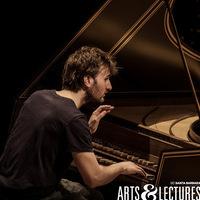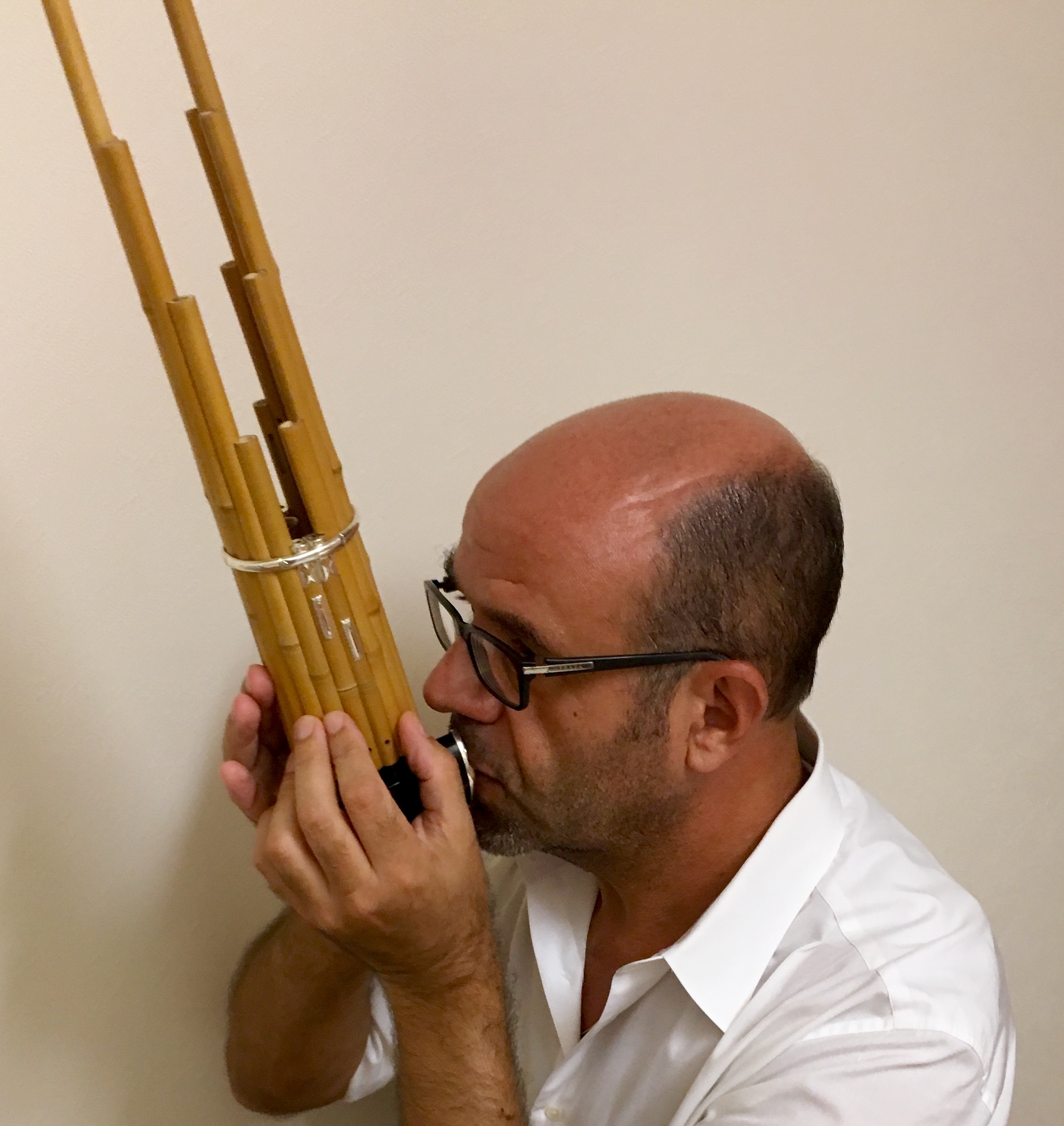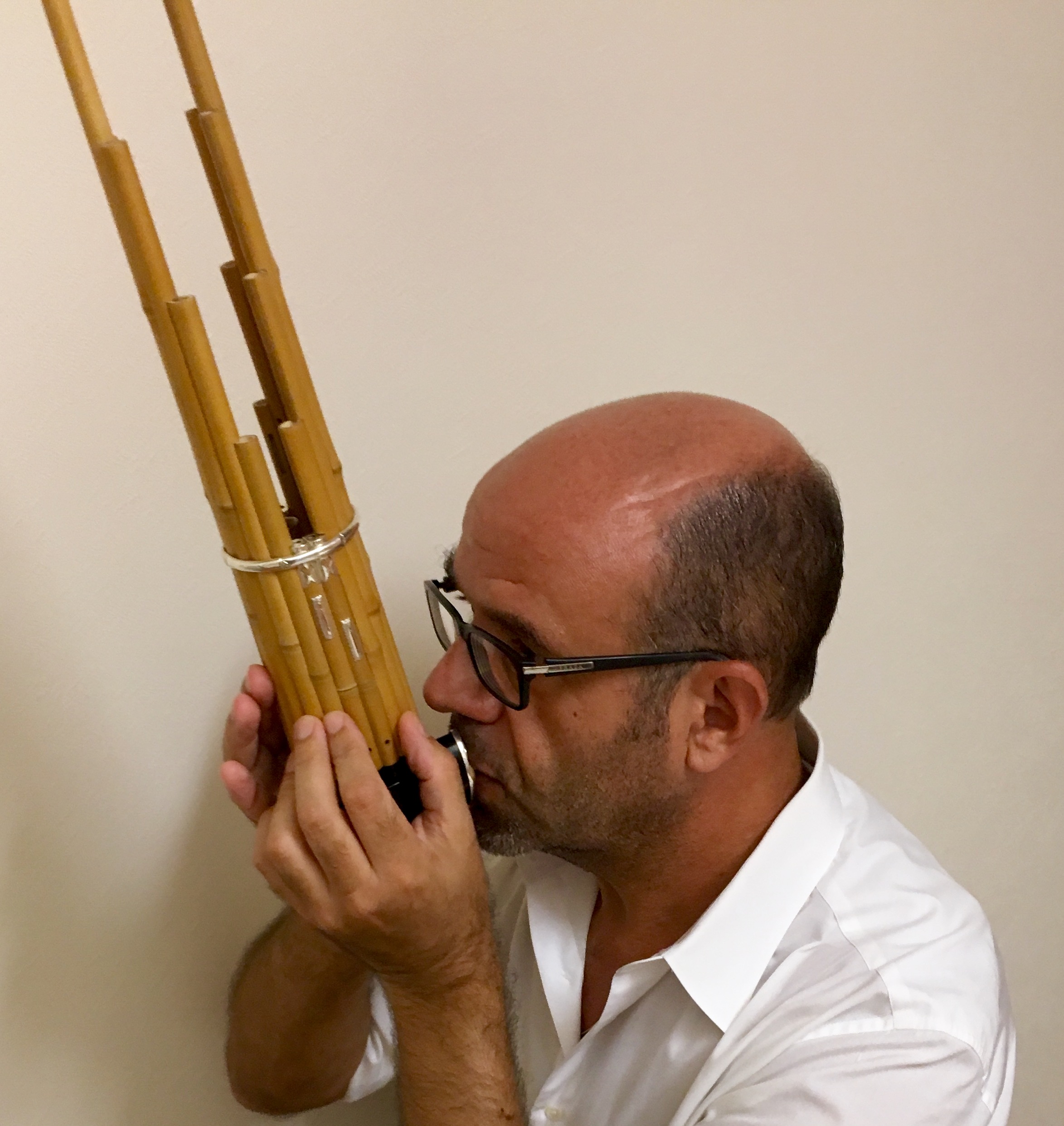Week of Events
UCSB Department of Music and Arts & Lectures presents: Jean Rondeau Harpsichord Masterclass
UCSB Department of Music and Arts & Lectures presents: Jean Rondeau Harpsichord Masterclass
Described as “one of the most natural performers one is likely to hear on a classical music stage” by The Washington Post, Jean Rondeau is a veritable global ambassador for his instrument. His outstanding talent and innovative approach to keyboard repertoire have been critically acclaimed, marking him out as one of today’s leading harpsichordists.
Jean Rondeau, harpsichord
Jean Rondeau, harpsichord
As a solo artist and a member of the Baroque ensemble Nevermind, Jean Rondeau has expanded the boundaries of early music and earned universal acclaim for his recordings and live performances. His outstanding talent and innovative approach to keyboard repertoire will be on full display with this performance of Bach’s Goldberg Variations, presented in its complete form, with the indicated repeats and judicious insertion of moments of silence.
Permutations and Combinations: CREATE Concert ft. Emeritus Professor Clarence Barlow
Permutations and Combinations: CREATE Concert ft. Emeritus Professor Clarence Barlow
The CREATE concert Permutations and Combinations features the return from Barcelona of the Corwin Chair of Composition Emeritus Clarence Barlow. His algorithmically-composed music is both audiovisual and multichannel spatial. Also featured is Dr. Rodney Duplessis, a recent UCSB graduate in music composition, and Drew Flieder, a current PhD student at UCSB. Curtis Roads will play a piece. The concert will conclude with a new ambisonic spatial work by the Paris-based composer Anne Sèdes. The duration of the concert is one hour.
Clarence Barlow was born in 1945 into the English-speaking minority of Calcutta, where he studied piano and music theory, started composing music in 1957 and obtained a science degree in 1965. After activities as pianist, conductor and music theory teacher he moved in 1968 to Cologne, studying composition and electronic music until 1973 at Cologne Music University and sonology at Utrecht University from 1971-72. Since 1971 he uses computers as a compositional aid. From 1982-94 he was head of computer music at the biannual Darmstadt New Music Summer Courses, from 1984-2005 lecturer on computer music at Cologne Music University, from 1990-91 guest composition professor at the Folkwang University Essen, from 1990-94 artistic director of the Institute of Sonology at the Royal Conservatory The Hague, where from 1994-2006 he was professor of composition and sonology. From 1994-2010 he was member of the International Academy of Electroacoustic Music in Bourges and from 2005-06 guest composition professor at the School of Music and Performing Arts ESMAE in Porto. From 2006-19 he was Corwin Chair of Composition at the University of California, Santa Barbara and was from 2018-20 guest professor at the Catalonia College of Music ESMUC in Barcelona where he now lives.
Gagaku Instruments Masterclass
Gagaku Instruments Masterclass
Gagaku Instruments Masterclass
Alicia “Lish” Lindsey (ryūteki), Thomas Piercy (hichiriki), Fabio Rambelli (shō)
POSTER: The two leading Gagaku musicians in North America, Lish Lindsey and Thomas Piercy, together with UCSB's Fabio Rambelli, conduct a masterclass on the the three woodwind instruments of the Gagaku orchestra.
WEB: The two leading Gagaku musicians in North America, Lish Lindsey (ryūteki) and Thomas Piercy (hichiriki), together with UCSB's Fabio Rambelli (shō), will conduct a masterclass on the three woodwind instruments of the Gagaku orchestra. They will introduce the instruments and explore their performance techniques, and teach how to perform pieces from the classical Gagaku repertory.
Guest bios:
Alicia “Lish” Lindsey plays the ryūteki (flute) and is the Gagaku Ensemble Director at Columbia University. Lish also teaches applied flute, directs/conducts flute choirs, and is an adjunct music lecturer at CUNY Brooklyn College (NYC), New Jersey City University, Wilkes University (PA), and Summer Music in Tuscany (Italy).
Thomas Piercy, already a prominent figure in the contemporary classical world as a clarinet soloist, began the study of the hichiriki in 2012. He has been influential in promoting the composition of new pieces for this ancient instrument; In addition to his own compositions, he has premiered many new works for hichiriki composed for him.
Fabio Rambelli is professor of Japanese religions at UCSB, where he is also the director of the UCSB Gagaku Project. He is writing a book on the cultural history of Gagaku. Rambelli plays the shō and has been championing a new kind of fusion music played on Gagaku instruments with his duo Neo Archē.
Sponsors: UCSB Shinto Studies, Department of Religious Studies, Music Department, Manitou Foundation and Division of Humanities and Fine Arts, Robert H. N. Ho Family Foundation Global.
Gagaku is the ceremonial music of the imperial court and the major Buddhist temples and Shinto shrines of Japan, recognized by UNESCO as the oldest continuously performed orchestral music in the world. Gagaku has long been known for its ancient inter-Asian translocal nature and its rich vernacular traditions. It is less known that since the 1960s, composers all around the world, beginning in the US, have been writing new music for Gagaku instruments, either based on traditional techniques or as ways to explore new possibilities and develop a new musical language. Lish Lindsey (ryūteki), Thomas Piercy (hichiriki), and Fabio Rambelli (shō) perform works by Alan Hovhaness, John Cage, and more recent original pieces, as well as selections from the classical repertory. Join us for this beautiful and unexpected concert. Organized by Fabio Rambelli, International Shinto Foundation Professor of Shinto Studies, UCSB.






